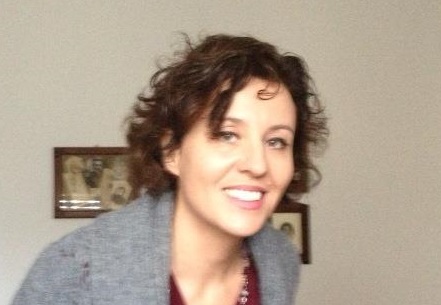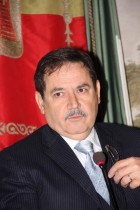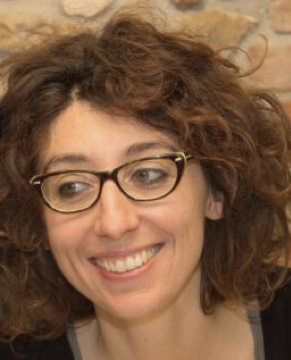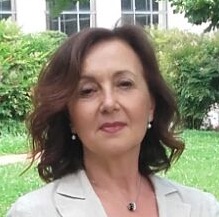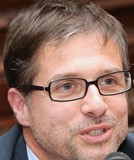Studiare
In questa sezione è possibile reperire le informazioni riguardanti l'organizzazione pratica del corso, lo svolgimento delle attività didattiche, le opportunità formative e i contatti utili durante tutto il percorso di studi, fino al conseguimento del titolo finale.
Calendario accademico
Il calendario accademico riporta le scadenze, gli adempimenti e i periodi rilevanti per la componente studentesca, personale docente e personale dell'Università. Sono inoltre indicate le festività e le chiusure ufficiali dell'Ateneo.
L’anno accademico inizia il 1° ottobre e termina il 30 settembre dell'anno successivo.
Calendario didattico
Il calendario didattico indica i periodi di svolgimento delle attività formative, di sessioni d'esami, di laurea e di chiusura per le festività.
| Periodo | Dal | Al |
|---|---|---|
| Sem IA | 1-ott-2013 | 17-nov-2013 |
| Sem IB | 18-nov-2013 | 19-gen-2014 |
| Sem IIA | 24-feb-2014 | 20-apr-2014 |
| Sem IIB | 21-apr-2014 | 8-giu-2014 |
| Sessione | Dal | Al |
|---|---|---|
| Sessione estiva (esami sospesi dal 08 al 10 luglio) | 9-giu-2014 | 31-lug-2014 |
| Sessione autunnale | 1-set-2014 | 30-set-2014 |
| Sessione invernale | 19-gen-2015 | 22-feb-2015 |
| Sessione | Dal | Al |
|---|---|---|
| Sessione estiva | 8-lug-2014 | 10-lug-2014 |
| Sessione autunnale | 11-nov-2014 | 13-nov-2014 |
| Sessione Invernale | 16-mar-2015 | 19-mar-2015 |
| Periodo | Dal | Al |
|---|---|---|
| Festa di Ognissanti | 1-nov-2013 | 1-nov-2013 |
| Festa dell'Immacolata Concezione | 8-dic-2013 | 8-dic-2013 |
| Vacanze Natalizie | 22-dic-2013 | 6-gen-2014 |
| Vacanze Pasquali | 17-apr-2014 | 22-apr-2014 |
| Festa della Liberazione | 25-apr-2014 | 25-apr-2014 |
| Festa dei lavoratori | 1-mag-2014 | 1-mag-2014 |
| Festa del S. Patrono S. Zeno | 21-mag-2014 | 21-mag-2014 |
| Festa della Repubblica | 2-giu-2014 | 2-giu-2014 |
| Vacanze Estive | 11-ago-2014 | 15-ago-2014 |
Calendario esami
Gli appelli d'esame sono gestiti dalla Unità Operativa Segreteria Corsi di Studio Scienze Umane.
Per consultazione e iscrizione agli appelli d'esame visita il sistema ESSE3.
Per problemi inerenti allo smarrimento della password di accesso ai servizi on-line si prega di rivolgersi al supporto informatico della Scuola o al servizio recupero credenziali
Per dubbi o domande leggi le risposte alle domande più frequenti F.A.Q. Iscrizione Esami
Docenti
 sonia.claris@univr.it
sonia.claris@univr.it
 donato.desilvestri@univr.it
donato.desilvestri@univr.it
 laura.fontecedro@univr.it
laura.fontecedro@univr.it
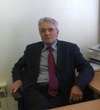
Longo Mario
 mario.longo@univr.it
mario.longo@univr.it
 045 8028393
045 8028393

Migliorati Lorenzo
 lorenzo.migliorati@univr.it
lorenzo.migliorati@univr.it
 045802 8135
045802 8135
Piano Didattico
Il piano didattico è l'elenco degli insegnamenti e delle altre attività formative che devono essere sostenute nel corso della propria carriera universitaria.
Selezionare il piano didattico in base all'anno accademico di iscrizione.
1° Anno
| Insegnamenti | Crediti | TAF | SSD |
|---|
Antropologia culturale
Sociologia e analisi delle dinamiche sociali
Storia della filosofia
Storia dell'educazione e della pedagogia
Tecnologie informatiche e multimediali
2° Anno Attivato nell'A.A. 2014/2015
| Insegnamenti | Crediti | TAF | SSD |
|---|
Psicologia dello sviluppo e dell'educazione
Arte come comunicazione
Didattica e progettazione educativa
3° Anno Attivato nell'A.A. 2015/2016
| Insegnamenti | Crediti | TAF | SSD |
|---|
Geografia sociale e culturale
Teorie e tecniche della socializzazione primaria
| Insegnamenti | Crediti | TAF | SSD |
|---|
Antropologia culturale
Sociologia e analisi delle dinamiche sociali
Storia della filosofia
Storia dell'educazione e della pedagogia
Tecnologie informatiche e multimediali
| Insegnamenti | Crediti | TAF | SSD |
|---|
Psicologia dello sviluppo e dell'educazione
Arte come comunicazione
Didattica e progettazione educativa
| Insegnamenti | Crediti | TAF | SSD |
|---|
Geografia sociale e culturale
Teorie e tecniche della socializzazione primaria
| Insegnamenti | Crediti | TAF | SSD |
|---|
Legenda | Tipo Attività Formativa (TAF)
TAF (Tipologia Attività Formativa) Tutti gli insegnamenti e le attività sono classificate in diversi tipi di attività formativa, indicati da una lettera.
Pedagogia generale (2014/2015)
Codice insegnamento
4S00738
Docente
Coordinatore
Crediti
6
Lingua di erogazione
Italiano
Settore Scientifico Disciplinare (SSD)
M-PED/01 - PEDAGOGIA GENERALE E SOCIALE
Periodo
Sem. IIB dal 20-apr-2015 al 7-giu-2015.
Obiettivi formativi
L’insegnamento di Pedagogia generale si propone un duplice obiettivo formativo di carattere generale:
- obiettivo conoscitivo: dare una presentazione generale del significato di educazione (“cos’è educazione”), di pedagogia (cos’è pedagogia e perché tante discipline pedagogiche”) e della presenza delle altre discipline nel corso di studio in Scienze dell’educazione;
- obiettivo formativo e professionale: fare cogliere il valore esistenziale, sociale, culturale e professionale della pratica educativa e della riflessione pedagogica.
Sulla base di questi obiettivi formativi generali, il corso si propone tre obiettivi formativi specifici: in relazione alle tre parti in cui si articola:
1) parte educativa: individuare la struttura fondamentale, le tematiche, i problemi e i concetti che sono presenti in ogni esperienza educativa;
2) parte epistemologica: comprendere la natura unitaria e insieme interdisciplinare del sapere pedagogico.
3) parte professionale: riflettere sul significato del lavoro educativo vissuto come attività professionale.
Programma
Contenuto del corso
Durante le lezioni saranno affrontati indicativamente i seguenti temi, relativi alla parte generale, storica e professionale del corso:
- il bisogno individuale, sociale e culturale di educazione;
- analisi degli elementi strutturali di ogni esperienza educativa;
- il sapere pedagogico: significato, compiti e sue articolazioni;
- dalla “pedagogia” alle “scienze dell’educazione;
- la dimensione teoretica, empirica e progettuale del sapere pedagogico;
- educazione e scelta professionale;
- l’etica professionale dell’educatore.
Modalità d'esame
Testi di riferimento
Per la preparazione all’esame sono obbligatori per tutti, frequentanti e non frequentanti, i due testi seguenti:
- D. Loro, Grammatica dell’esperienza educativa. La ricerca dell’essenza in educazione, Milano, ed. Franco Angeli 2012.
- D. Demetrio, L’educazione non è finita. Idee per difenderla, Milano, ed. Raffaello Cortina, 2009 e successive ristampe.
Un terzo libro obbligatorio è a scelta tra i seguenti due:
- V. Andreoli, L’educazione (im)possibile, Milano, ed. RCS Libri- Rizzoli, 2014. (Consigliato agli studenti che sono interessati al lavoro educativo in ambito sociale, giovanile e con gli adulti).
- M. D’Amato, Ci siamo persi i bambini. Perché l’infanzia scompare, Roma-Bari, ed. Laterza, 2014 (Consigliato agli studenti che sono interessati al lavoro educativo con i bambini).
Metodi didattici
Le lezioni avranno prevalentemente un carattere frontale, ma al loro interno saranno favoriti interventi, domande e brevi dibattiti
Modalità d’esame
L’esame avverrà nella forma della prova scritta, della durata di 2 ore. La prova sarà composta di 5 domande aperte di vario genere (es. descrittivo, definitorio, riassuntivo, argomentativo, analisi e commento di una frase, ecc..). Se il numero degli iscritti ad un appello fosse eccessivo e tale da non garantire lo svolgimento ordinato della prova, l’appello sarà tenuto in due fasi successive, articolate secondo l’ordine alfabetico. In questo caso il giorno precedente l’esame il docente comunicherà i nominativi di quanti faranno l’esame nella prima o nella seconda fase della prova.
Tipologia di Attività formativa D e F
Insegnamenti non ancora inseriti
Prospettive
Avvisi degli insegnamenti e del corso di studio
Per la comunità studentesca
Se sei già iscritta/o a un corso di studio, puoi consultare tutti gli avvisi relativi al tuo corso di studi nella tua area riservata MyUnivr.
In questo portale potrai visualizzare informazioni, risorse e servizi utili che riguardano la tua carriera universitaria (libretto online, gestione della carriera Esse3, corsi e-learning, email istituzionale, modulistica di segreteria, procedure amministrative, ecc.).
Entra in MyUnivr con le tue credenziali GIA: solo così potrai ricevere notifica di tutti gli avvisi dei tuoi docenti e della tua segreteria via mail e a breve anche tramite l'app Univr.
Prova Finale
La discussione dell’elaborato finale avviene alla presenza di una Commissione Istruttoria composta dal relatore del laureando ed un altro docente. La discussione può essere effettuata in presenza oppure a distanza, in base alle disposizioni di Ateneo.
Superata la discussione dell’elaborato con la Commissione Istruttoria, la proclamazione con comunicazione del voto di laurea avverrà nel periodo indicato nel calendario didattico.
Il giorno, l'ora e le modalità di proclamazione sono resi noti con la pubblicazione del Calendario Lauree commissioni Triennali.
Possono far parte della Commissione, in soprannumero e limitatamente alla discussione degli elaborati di cui sono correlatori, anche docenti ed esperti esterni.
La Commissione di proclamazione dispone di centodieci punti; il voto minimo per il superamento della prova finale è di 66/110; al candidato che abbia ottenuto il massimo dei voti, può essere conferita all’unanimità la menzione della “lode”.
Di norma la Commissione istruttoria può proporre di attribuire fino ad un massimo di 8 punti per l’elaborato finale. Per la determinazione del voto di laurea la media dei voti d’esame è calcolata tenendo conto di tutte le prove, in qualsiasi ambito del piano di studio individuale siano inserite, che diano luogo a un voto espresso in trentesimi. Tale media è ponderata in base al numero di CFU corrispondenti a ciascuna prova. A tale media sono aggiunti fino ad un massimo di 4 punti, distribuiti nel seguente modo:
- 0,5 per ogni lode fino ad un massimo di tre punti;
- 2 punti: in rispetto, e ampliamento, di quanto previsto dal Regolamento di Ateneo per la mobilità studentesca internazionale, allo scopo di favorire la partecipazione alla mobilità internazionale (vedi art. 5 comma 4° del Regolamento di Ateneo e art. 12 del Regolamento di Dipartimento sulla Mobilità internazionale), a tutte le studentesse e a tutti gli studenti che nel corso del ciclo di studi abbiano acquisito il riconoscimento in carriera di almeno 12 CFU conseguiti in mobilità internazionale verranno attribuiti n. 2 (due) punti aggiuntivi da computarsi ai fini della determinazione del punteggio finale di laurea.
- 1 punto per la conclusione degli studi nel periodo previsto;
- 1 punto per l’acquisizione di 40 CFU entro il primo anno di studi (il punto viene attribuito se il/la laureando/a si è immatricolato per la prima volta al I anno al sistema universitario nell'a.a. X/X+1 e ha proseguito al II anno nello stesso corso di studio. Si computano solo i CFU acquisiti nell'a.a. X/X+1 dal 01/10/XX al 31/12/XX+1 con esclusione di quelli derivanti da riconoscimento carriera. Non si applica per chi ha fatto una precedente rinuncia agli studi, una sospensione della carriera o se è stato ripetente).
La commissione proclamatrice, visto il punteggio di base, visti i punteggi aggiuntivi, visto il punteggio attribuito dalla commissione istruttoria alla presentazione, vista la eventuale proposta di lode della commissione istruttoria attribuisce la lode se si verificano entrambe le condizioni seguenti:
- La somma dei punteggi aggiuntivi, punteggio di base, e valutazione per la discussione risulta maggiore o uguale a 110;
- La commissione istruttoria ha proposto la lode.
Documenti
| Titolo | Info File |
|---|---|
|
|
pdf, it, 99 KB, 13/10/23 |
|
|
pdf, it, 101 KB, 10/04/24 |
Elenco delle proposte di tesi e stage
| Proposte di tesi | Area di ricerca |
|---|---|
| Ambienti e contesti di lavoro con minori | Argomenti vari |
| Analisi dei personal network di sostegno | Argomenti vari |
| comunicazioni relative alla tesi | Argomenti vari |
| Il teatro come contesto educativo | Argomenti vari |
| I processi di globalizzazione culturale nella società contemporanea | Argomenti vari |
| La social network analysis applicata allo studio dei contesti educativi | Argomenti vari |
| L'educatore ed i progetti europei | Argomenti vari |
| L'impegno associativo in ambito educativo | Argomenti vari |
| Politiche sociali e contesti educativi | Argomenti vari |
| Progetti di collaborazione con le istituzioni scolastiche | Argomenti vari |
| PROPOSTE TESI AMBITO GEOGRAFICO | Argomenti vari |
| Scuola e capitale sociale | Argomenti vari |
Esercitazioni Linguistiche CLA
Gestione carriere
Tutorato per gli studenti
E' attivo un servizio di tutorato da parte di studenti della laurea magistrale in Scienze pedagogiche; per l'A.A. 2023-2024, fino al 30 novembre 2024 l'attività sarà svolta dai seguenti studenti:
Pagina INSTAGRAM tutor.educazioneunivr
Per chiedere appuntamento o consulenza, mandare una email (dalla propria e-mail istituzionale) a questo indirizzo: tutoreducazione@ateneo.univr.it
Si precisa che nell'email dovranno essere inseriti:
- Nome e cognome
- matricola
- Corso di studi, indirizzo e anno di corso
- problematica/richiesta per cui si contattano le tutor.
Infine, si ricorda chetutti i docenti del Corso di Studio possono fornire una forma di tutorato volta ad orientare e assistere gli studenti lungo tutto il corso degli studi.
Le matricole, gli studenti che si approcciano al tirocinio, gli studenti in uscita e tutti gli studenti che manifestano difficoltà nel loro percorso di studi possono contattare i docenti indicati come tutor del corso di laurea in Scienze dell'educazione:
- prof.ssa Rosanna Cima (Referente del CdS)
- prof. Luigi Tronca
- prof.ssa Federica De Cordova.
Guide operative per lo studente
In questa pagina lo studente potrà trovare delle guide operative, utili al completamento del proprio percorso universitario, che vanno ad integrare quanto già indicato nei Regolamenti didattici del CdS.
1- Qui si possono reperire indicazioni in merito ai riconoscimenti di carriera, ai crediti a libera scelta per lo studente e alle certificazioni linguistiche per gli studenti iscritti ai CdS afferenti al Dipartimento di Scienze Umane a partire dalla coorte 2022 (le indicazioni contenute nella Guida entrano in vigore dal 29 marzo 2023 e sono retroattive solo se a favore dello studente);
2 - Qui si possono reperire indicazioni in merito ai riconoscimenti di carriera, ai crediti a libera scelta per lo studente e alle certificazioni linguistiche per gli studenti iscritti ai CdS afferenti al Dipartimento di Scienze Umane a partire dalla coorte 2014 (le indicazioni contenute nella Guida entrano in vigore dal 29 aprile 2020 e sono retroattive solo se a favore dello studente);
3 - Qui si possono reperire indicazioni in merito al conseguimento dei crediti a libera scelta (Crediti D e F) per gli studenti iscritti ai i CdS afferenti al Dipartimento di Scienze Umane fino alla coorte 2013 (le indicazioni contenute nella Guida entrano in vigore dal 23 febbraio 2011 e sono retroattive solo se a favore dello studente).
Documenti
| Titolo | Info File |
|---|---|
|
|
pdf, it, 325 KB, 02/05/23 |
|
|
pdf, it, 212 KB, 02/05/23 |
|
|
pdf, it, 131 KB, 02/05/23 |
Stage e Tirocini
Le ulteriori attività formative (crediti F) sono interamente coperte dall’attività di tirocinio “indiretto” (1 cfu) da svolgersi nel secondo anno e di tirocinio “diretto” (14 cfu) da svolgersi presso enti convenzionati per un numero complessivo di 15 cfu (375 ore). Chi è iscritta/o al curriculum servizi per l’infanzia è tenuta/o a svolgere il tirocinio presso nidi e servizi per la prima infanzia per almeno il 50% delle ore.
Il tirocinio professionalizzante (375 ore, pari a 15 cfu), è obbligatorio sia nella sua forma diretta che indiretta.
Il tirocinio indiretto, della durata di 25 ore a frequenza obbligatoria al 75%, si svolge in Università per 20 ore e in forma di lavoro individuale per 5 ore e consiste in un accompagnamento iniziale delle/degli studenti da parte dei tutor attraverso un percorso formativo dotandoli di conoscenze e strumenti adeguati a osservare, comprendere e rielaborare criticamente l’esperienza di tirocinio nei servizi educativi e ad affrontare il tirocinio negli enti con metodo e consapevolezza. Il percorso, da attuare in gruppi da 20-25 persone sotto la supervisione di un tutor, risponde alle esigenze costantemente espresse sia dalle/dagli studenti stessi sia dalle parti sociali che dai referenti degli enti convenzionati.
Il tirocinio diretto si propone di raggiungere i seguenti obiettivi:
- fare esperienza diretta di attività professionali, che richiedono un livello di preparazione al lavoro educativo;
- approfondire in particolare il rapporto tra preparazione teorica, acquisita mediante lo studio, ed esperienza pratica, tra mondo del sapere e della cultura e mondo del lavoro e delle professioni;
Al termine del tirocinio diretto lo studente deve presentare una relazione scritta, nella modalità concordata con il tutor accademico.
Nuove Linee Guida per il tirocinio di Scienze dell'educazione.
- Tutte le informazioni in merito agli stage per futuri studenti sono disponibili alla pagina Stage e tirocini.
- Tutte le informazioni in merito agli stage per studenti iscritti sono pubblicate in MyUnivr - come fare per - stage e tirocini.
- Tutte le informazioni in merito agli stage per le aziende sono disponili alla pagina Stage e tirocini per azienze.
Documenti
| Titolo | Info File |
|---|---|
|
|
pdf, it, 302 KB, 16/07/21 |









